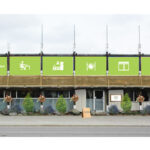I’ve just returned from Regina, where the mood inside the Queensbury Convention Centre mirrored the vibrant prairie summer outside. Parents clutched program booklets, smartphones captured tearful embraces, and seven remarkable young Canadians stood at the threshold of their agricultural futures.
The Canadian Agri-Business Education Foundation (CABEF) announced its 2025 scholarship recipients yesterday evening, awarding $2,500 each to students pursuing agriculture-related studies across the country. This year’s ceremony carried particular significance as the foundation celebrates its 15th anniversary of supporting the next generation of agricultural leaders.
“These students represent exactly what Canadian agriculture needs – innovative thinking grounded in practical experience,” said Maria Gonzalez, CABEF’s executive director, as she addressed the gathering of industry representatives, proud families, and past recipients. “Their applications demonstrated not just academic excellence, but a genuine commitment to advancing our food systems.”
Among this year’s winners was Saskatoon’s own Emma Pritchard, who grew up working alongside her parents on their fourth-generation grain operation near Humboldt. Pritchard, heading to the University of Saskatchewan this fall for Agricultural Economics, told me her scholarship application essay focused on implementing regenerative practices while maintaining economic viability.
“I’ve watched my parents navigate drought, market volatility, and changing consumer demands,” Pritchard said, adjusting her graduation tassel as we spoke after the ceremony. “There’s this perception that traditional farming and innovation are somehow opposed, but my generation sees them as complementary.”
The scholarship program, funded through contributions from agribusiness leaders including Corteva Agriscience, Cargill, and Farm Credit Canada, has awarded over $325,000 to 130 students since its inception in 2010, according to CABEF’s annual impact report.
Provincial agriculture ministries were well-represented at the event. Saskatchewan Agriculture Minister David Marit praised the diversity of this year’s cohort, which includes students specializing in fields ranging from soil science to agricultural communications.
“The breadth of expertise these young people bring reflects the complexity of modern agriculture,” Marit said. “We’re not just talking about production anymore, but entire value chains, environmental stewardship, and global food security.”
The Statistics Canada 2024 Farm Operator Survey, released last month, underscores the importance of initiatives like CABEF’s scholarship program. The average age of Canadian farm operators now stands at 56, continuing a decades-long aging trend across the sector. Meanwhile, enrollment in agricultural programs has increased 12% nationwide since 2020, according to the Association of Canadian Faculties of Agriculture and Veterinary Medicine.
Ontario recipient Jamal Washington embodies this new wave of agricultural professionals. Growing up in suburban Mississauga, Washington discovered agriculture through an urban farming initiative at his high school. Now headed to the University of Guelph for Agribusiness Management, he hopes to develop market connections between urban consumers and rural producers.
“My friends used to joke about me being a farmer when I started spending weekends at the community garden,” Washington shared during the student panel discussion. “Now three of them are volunteering there too. There’s this awakening happening about where our food comes from.”
The ceremony wasn’t without its sobering moments. British Columbia recipient Taylor Chen described how watching wildfire threaten her family’s orchard last summer cemented her decision to study Agricultural Systems Management at McGill University.
“Climate adaptation isn’t theoretical for us,” Chen said. “It’s watching your parents install expensive irrigation systems one year and fight floods the next.”
CABEF board chair Jonathan Reynolds acknowledged these challenges in his closing remarks, noting that the foundation has expanded its mandate beyond scholarships to include mentorship programs and internship placements.
“The transition into agricultural careers requires more than financial support,” Reynolds said. “We’re building a community these young people can rely on as they navigate complex issues from climate change to trade disruptions.”
For Manitoba’s Robert Cardinal, a Métis student entering the University of Manitoba‘s Agroecology program, the scholarship represents more than financial assistance.
“This recognition tells Indigenous youth that our traditional knowledge has value in modern agricultural systems,” Cardinal told me as the reception wound down. “My kokum [grandmother] taught me about companion planting before I ever saw it in a textbook.”
Applications for next year’s scholarships open in January 2026, with CABEF expanding the program to include two additional awards specifically for students focusing on agricultural technology and food security.
The remaining 2025 winners include Nova Scotia’s Emily MacDonald (Dalhousie University, Agricultural Business), Quebec’s Alexandre Tremblay (Université Laval, Agronomy), and Alberta’s Kayla Henderson (Olds College, Agricultural Management).
As I watched these seven students pose for photos on the convention centre steps, their futures unfolding before them like Saskatchewan’s endless horizon, I was reminded why agricultural reporting matters. These aren’t just scholarship stories – they’re glimpses into how our food systems will adapt, who will lead that adaptation, and ultimately, how we’ll continue feeding a hungry world.
For more information on CABEF scholarships and programs, visit their website or contact provincial agricultural extension offices.






